How Water Helps People Earn a Living
A lack of water means so much more than just being thirsty. When people don’t have a source of safe, reliable water, everything suffers: their health, their food supply, their education, and even their livelihood.
Ready access to clean water makes supporting one’s family easier, no matter the profession. In the areas where The Water Project works, this can take different forms. Many people pair water with natural resources they can acquire for free to make commodities to sell — things like bricks, soap, palm oil, or food products.
Brick-Making
“It is tough working in the mud, but we earn some income from this,” said Caleb from Tawa Community in Southeast Kenya, who went into brickmaking for his living after the construction of a new sand dam brought water closer to his community.
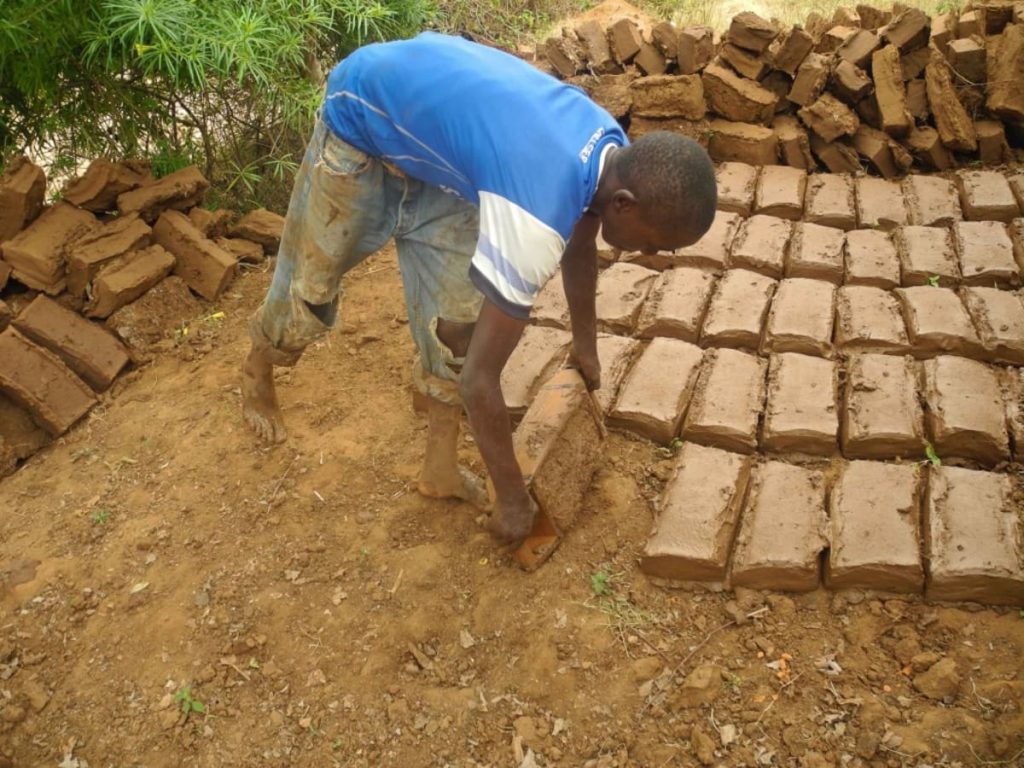
“One brick sells at Ksh.15 (roughly 17 US cents) locally. But today, I am making bricks for my dad, who intends to construct a residential house in the nearby market center. He is not paying me for this work. He is a good man. He has supported me quite a lot in life, that is why we are here reciprocating our support to him.”
Caleb explained that, with assistance from a friend, he can make 400 bricks per day between 8 a.m. and 2 p.m.
Brick-making is mostly done in the hot hours of the day under the scorching sun. Caleb collects water from a scoop hole next to his community’s sand dam, which he then pours into a simple wood frame box filled with soil excavated from the ground with hoes; he then stirs the mixture until it’s almost viscous. It is tedious and very physically demanding work, requiring a lot of water and many trips to the scoop hole.
Palm Oil-Making
“The newly rehabilitated water well will help me to achieve goals that are important in my life and the community,” said 35-year-old trader Fatmata from Laminaya Community in Sierra Leone. “With sufficient water, the job of processing palm oil will be easy for me. I will be able to process my palm oil every time the need arises without delay.”
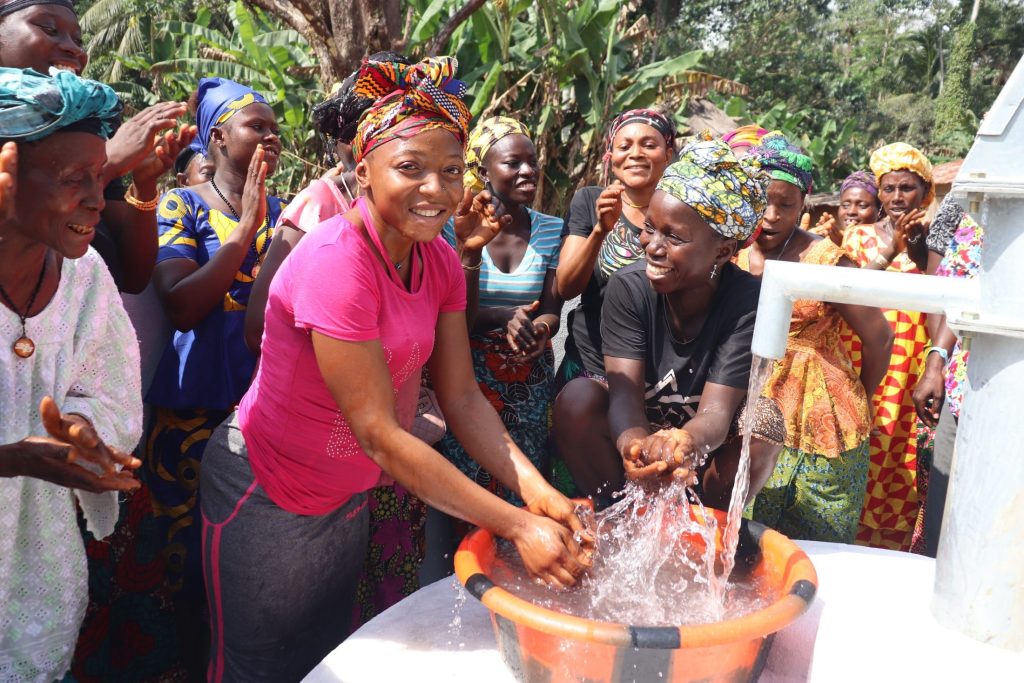
Making palm oil begins with harvesting ripe fruit bunches from oil palm trees. The harvested bunches are then transported to a processing site, where the individual fruits are separated from the bunch stalk.
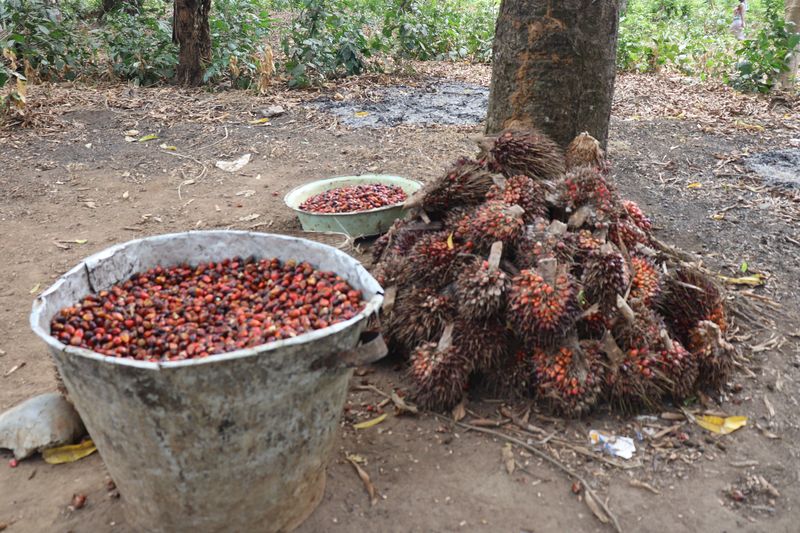
The separated fruits are sterilized, usually by boiling or steaming, to soften the fruit flesh and prevent enzyme activity that can spoil the oil. This step also helps loosen the fruit’s outer skin.
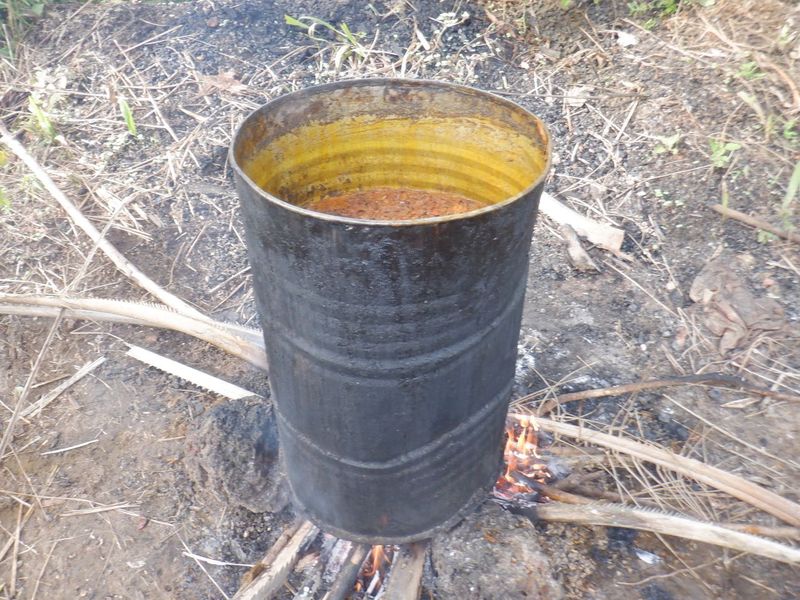
After sterilization, the fruits are mashed or pounded to break down the pulp and release the oil. This is often done using large mortar and pestle-like tools or mechanical digesters.
The mashed pulp is then pressed to extract the crude palm oil. In traditional methods, this is done manually by squeezing the pulp, while more mechanized systems may use hydraulic presses or screw presses.
The extracted oil contains water, fibers, and other impurities. It is left to settle in a container, allowing the oil to rise to the top while the water and impurities settle at the bottom. The oil is then skimmed off the top.
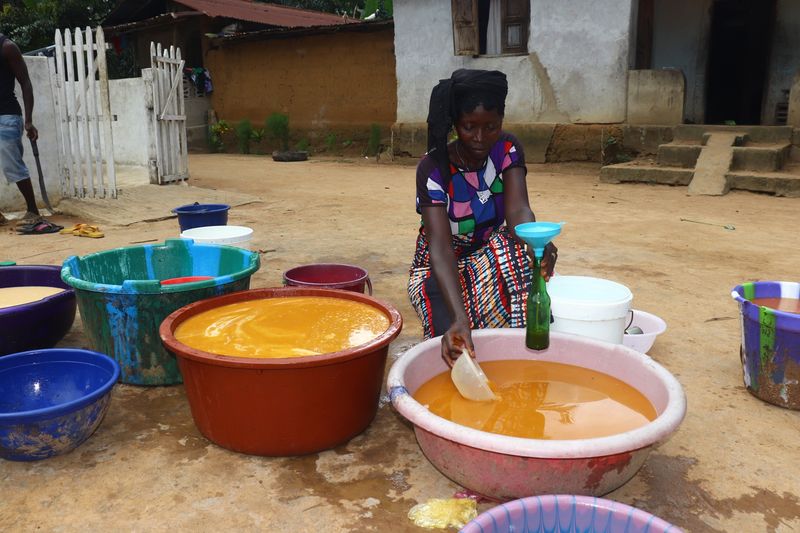
Still Struggling
Through the power of water, it’s easy to see why it’s been said that donating to clean water access has such a high return on investment. As soon as people get their hands on water, all aspects of life — including acquiring a steady income — become easier.
It follows, then, that earning a living is a real struggle for communities who have yet to receive a safe, reliable water source close to home.
Like many, 22-year-old food trader Isatu Bangura from Masanneh Community in Sierra Leone works hard — and any time not used to secure her livelihood drains her precious resources.
“It is hard for me to fetch enough water [for] my house every day before I could go out to trade,” Isatu said.
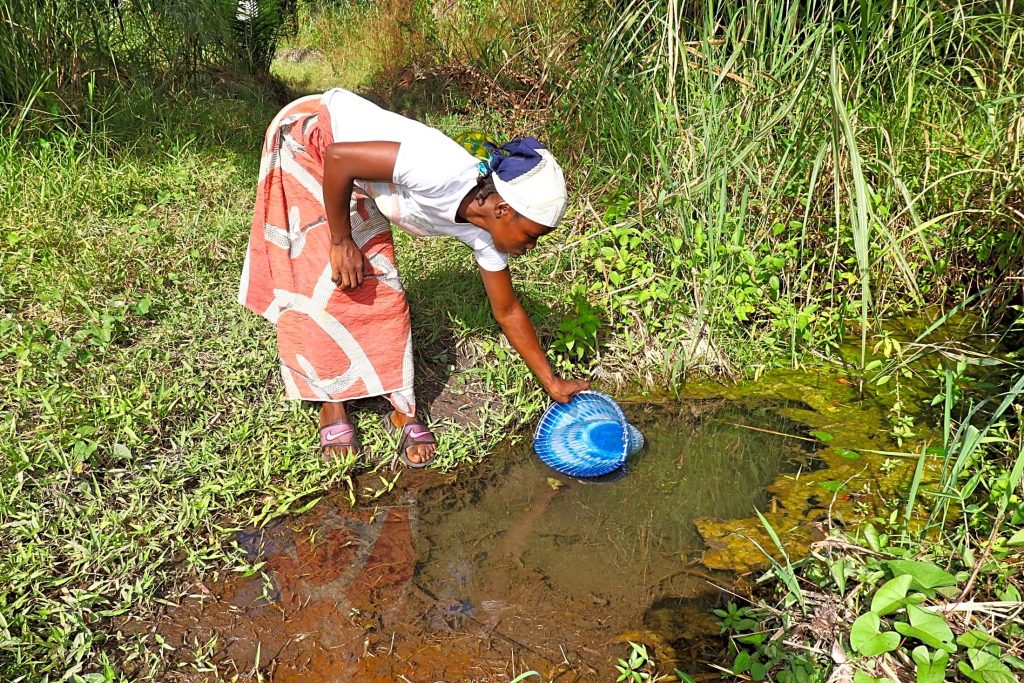
“It is difficult for me to get more sales because of the delay in fetching water and doing the morning duties before going out to trade. I have lost customers because they could not see me on time. This is affecting my business because I could not get high sales and profits to support my family.”
Isatu needs water to prepare the food she sells. But first, she has to trek through the forest to her community’s swamp to gather it. By the time she returns home, she’ll have already missed out on business opportunities that those who have water close by will have taken for themselves.
Like Isatu, farmer John Kitheka Munuve from Kisirani Community in Southeast Kenya struggles to earn a living without easy access to water.
“It is very exhausting to improve one’s livelihood in this area because we are farmers who depend on water that’s barely available, which consequently affects farming,” John explained.
“Getting water to irrigate our crops and vegetables is impossible because the little available water is mostly used for cooking and drinking,” John continued. “Meals at home are also prepared late, and I end up on an empty stomach during most afternoons. My cattle and goats also provide poor yields due to exhaustion when walking to drink water from the borehole or shallow well.”
The long-term struggle without access to water affects not only people’s livelihoods, but also their health. Contending with both drains people’s time, energy, and spirit.
“The water situation affects my health and the health of my one-and-a-half-year-old child, Esther,” said 42-year-old housewife Agnes Angeya from Nyakatiti Community in Uganda. “Last month, we had stomach aches and diarrhea, which lasted for four days. We spent a lot of money on treatment.”
“As a farmer, it cost me a lot [of time], missing [my] garden for all the four days,” Agnes continued. “With the poor rains nowadays, I missed planting on time, and all the plants didn’t come out well, which will result in low output. The frequent sickness also makes me weak, leading to [a] reduction in energy levels, affecting [my] work and output.”
Without help from generous people like you, enterprising people like Isatu, John, and Agnes will continue to struggle without access to clean water to help them provide for their families. Today, you can contribute to brighter, more prosperous futures for entire communities — through the power of safe, reliable water.
Home More Like ThisTweet